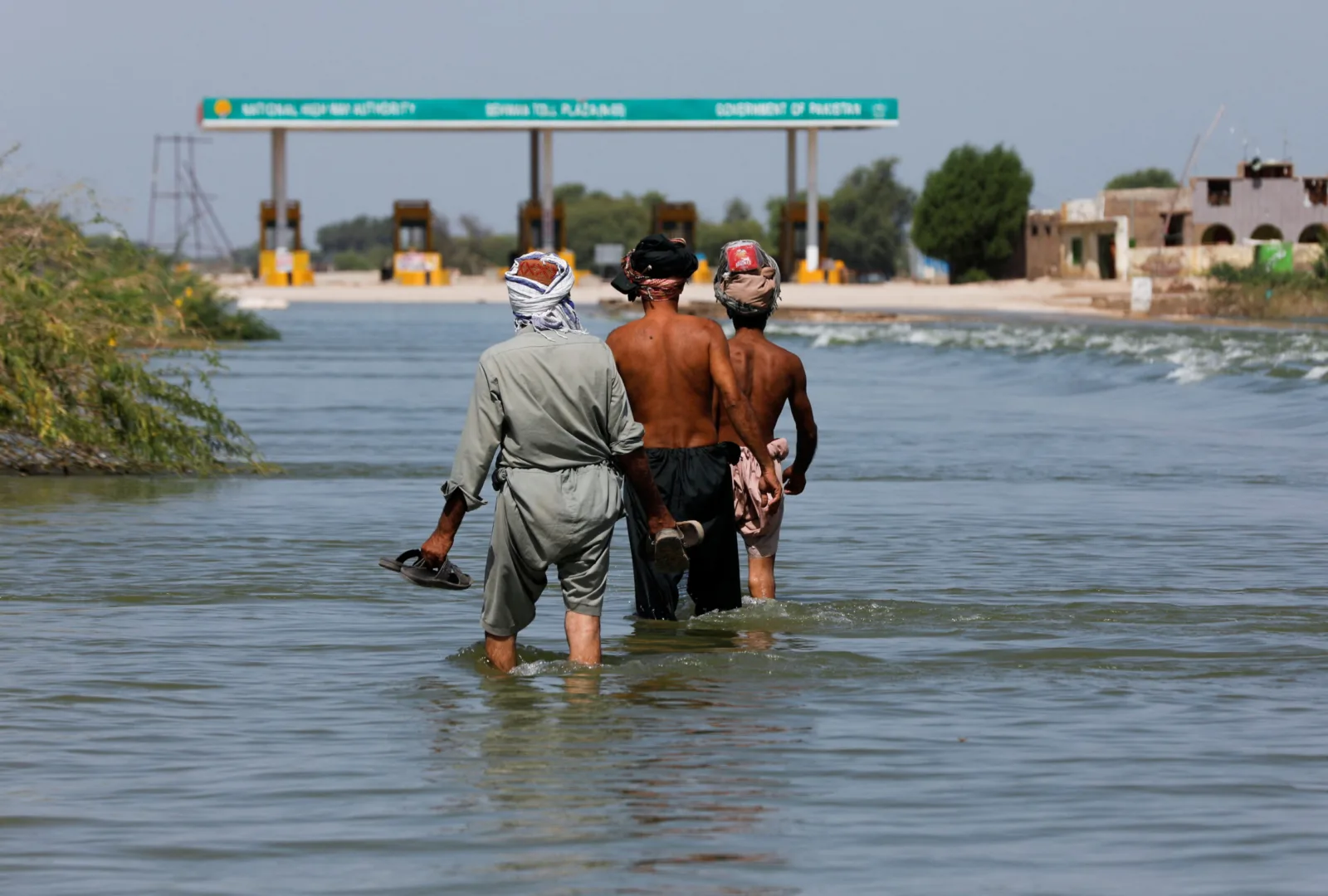What Pakistan’s Climate Crisis Means for the World
This past summer and fall, Pakistan experienced unprecedented flooding, resulting in at least 1,500 deaths, 33 million affected people, and one third of the country being submerged. Pakistan is the fifth most populous country in the world, yet contributes less than 1% of global carbon emissions. Despite this, it is still among the top ten most vulnerable countries to the impacts of climate change. The devastating floods of last year have instigated a nationwide dialogue in Pakistan regarding the need for increased resilience to climate change, as well as a global discourse on how to address it overall. South Asia as a whole finds itself on the frontline of climate change. The United States has committed more than $200 million in aid to Pakistan, and an additional $9 billion was pledged in January at a donor’s conference in Geneva. Despite the world’s response, questions remain as to whether the pledged money will actually arrive, and if it does, whether it will be used responsibly. Join us for a panel that explores the impact of climate change on frontline countries and the world with featured guest Masood Khan, Ambassador of Pakistan to the United States and Steve Rynecki, Director for USAID’s Office of Climate and Sustainable Growth at the U.S. Embassy in Islamabad. Adam Weinstein, Research Fellow in the Quincy Institute’s Middle East Program, will moderate.
Program
Panelists

Ambassador Masood Khan
Ambassador Masood Khan is currently serving as Pakistan’s Ambassador to the United States. Previously he was the President of Azad Jammu and Kashmir from August 2016 to August 2021. He has also served as Pakistan’s Ambassador and Permanent Representative to the United Nations, Ambassador to China, Spokesman of Pakistan’s Ministry of Foreign Affairs, and several other distinguished posts. He was also the Director General of the Institute of Strategic Studies Islamabad, one of Pakistan’s most esteemed think tanks.

Steve Rynecki
Steve Rynecki is the Director for USAID’s Office of Climate and Sustainable Growth at the U.S. Embassy in Islamabad. He has held various roles within the agency, including Division Chief for the Office for Civilian-Military Cooperation, Deputy Director at the Office of Economic Growth, and a position in the U.S. Embassy in Kabul. He successfully managed a portfolio of $300 million for trade, investment, finance, cybersecurity, and energy development in Ukraine. Mr. Rynecki holds two Masters degrees from the EU Business School and U.S. Army School of Advanced Military Studies.

Adam Weinstein (Moderator)
Adam Weinstein is a Research Fellow at the Quincy Institute. He previously worked for KPMG’s international trade practice. Adam’s current research focuses on security, trade, and rule of law in Afghanistan, Pakistan, and the Middle East. He previously worked as senior law and policy analyst at the National Iranian American Council where he focused on the securitization of U.S. immigration policy and its effect on immigrant communities. He is alsoa non-resident fellow at Tabadlab, an Islamabad based think tank and advisory firm. He received a JD from Temple University Beasley School of Law with a concentration in international law and transitional justice. Adam served as a U.S. Marine and deployed to Uruzgan Province Afghanistan in 2012.
